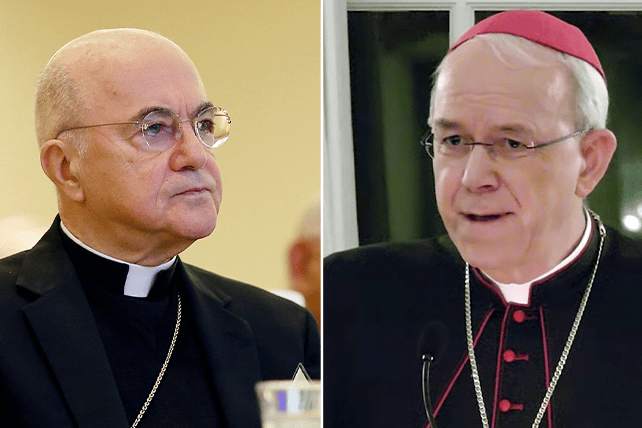His new book, “Flee from Heresy,” details the history of schismatic and heretical schools of thought in the church and is scheduled to publish July 16. “Even a blind person perceives that we are living in a time of great confusion regarding clarity of doctrine and morals. It felt necessary to help the faithful and priests to speak about the common errors not only of our time, but also of the past,” he said.
Schneider said relativism is the greatest challenge facing the church in its suggestion that “truth is not something absolute, but relative.” He pointed to gender theory as a consequence of this mindset and condemned international organizations that defend and support it globally.
“The Holy See is becoming an instrument of the global elites,” he said. “It is sad that this global new ideology managed to succeed to a great extent in taking the Catholic Church hostage and turning the Holy See and the episcopates into its collaborators.”
Schneider said he believes his new book will help inform Catholics about their faith. In October of last year, he presented another book, “Credo: Compendium of the Catholic Faith,” with suggestions for updating official doctrine to address gender, sexuality and modern technology.
While the pope has welcomed dialogue, and even criticism, from his opponents, he has recently cracked down on conservative pundits, including Viganò. Last year, Francis asked that the de-facto leader of the conservative faction in the church, Cardinal Raymond Burke, leave his Vatican apartments, and he removed outspoken papal critic Bishop Joseph Strickland from his diocese in Tyler, Texas.
At the time, Schneider took Strickland’s defense, calling the accusations against him “insubstantial and disproportionate” in a public letter.
Schneider told RNS that his criticism of Francis is “an expression of true and sincere love for the pontiff,” while underlining the duty of bishops to call out the head of the church when he is in error. “I will not be judged by Pope Francis when I die,” he said. “Only God is my judge.”
This article originally appeared here.

